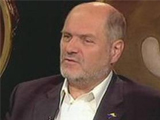 Bosnia’s Federation government gets a new prime minister, but as the entity government faces economic crisis and protests over planned social benefits cuts that threaten to bring it down, the only options are bankruptcy or political suicide, Anes Alic comments for ISN Security Watch.
Bosnia’s Federation government gets a new prime minister, but as the entity government faces economic crisis and protests over planned social benefits cuts that threaten to bring it down, the only options are bankruptcy or political suicide, Anes Alic comments for ISN Security Watch.
The Bosniak- (Bosnian Muslim) and Bosnian Croat-dominated Federation entity government has a new prime minister – a fact that has drawn very little attention from the politically disillusioned Bosnian public, not to mention the Federation government itself.
During his inauguration speech before parliament last week, newly elected Prime Minister Mustafa Mujezinovic cut his address short after only a few minutes because no one was paying any attention, despite the fact that the country is facing its worst post-war political crisis yet, bankruptcy and protesters threatening to bring the government down.
Instead, parliamentarians present, just minutes after a majority voted for Mujezinovic for prime minister, fled to the nearby cafeteria or stepped into the hall for a smoke. Those who appropriately stayed behind, talked on their mobile phones, blatantly read newspapers or rather loudly discussed the death of pop icon Michael Jackson.
Faced with such an uninterested audience, Mujezinovic, from the Bosniak Party of Democratic Action (SDA), interrupted his address, saying he had hoped to deliver an optimistic message to his peers, but “since there is no interest in that, I will give up the rest of my presentation.”
Perhaps, though, what he would have had to say was too predictable for his colleagues, and hence the lack of interest.
He later told journalists in Sarajevo, who were ready to listen, that his priority would be economic development and the fulfillment of obligations to the International Monetary Fund (IMF) – any new prime minister’s impossible miracle speech.
Indeed, the problems the new prime minister faces are formidable, and though they appear to be economic in nature, they are largely political under the surface. Any false move on his part will result in a short tenure.
In fact, Mujezinovic was not the first choice for this post, but the third choice. The first two choices, both experienced economists and successful businessmen, rejected the offer to lead the government, saying it would be pointless.
Mujezinovic has only two options now, and there is no room for compromise. He can either watch the Federation sink into bankruptcy, or he can make significant and very unpopular budget cuts. The first would be in no one’s interest. The second would certainly destroy his political career.
The IMF recently decided to postpone the processing of an earlier agreed on €1.2 billion ($1.69 billion) stand-by loan for Bosnia after the Federation entity failed to cut its social and welfare budget by 10 percent, as the IMF required, and as the Federation government had earlier agreed.
The Federation is obligated to reduce spending by some €211 million, or more than one-fifth of this year’s budget – and most of the cuts would target war veterans, invalids of the war, those with military decorations and the families of people killed during the war. That population, a total of 184,000 people, represents the single biggest area of spending for the entity and some 40 percent of the annual budget.
Both local and international experts, including the IMF, claim that the entity will collapse if social spending is not reduced, and the Federation government is surely aware of that, but lacks the political will to follow through, as social spending beneficiaries have threatened to bring the government down should their payments be reduced.
In Mujezinovic’s first day in office, war veterans indeed made their threats clear, with massive protests that were just a sampling of what is to come. On top of that, almost all employees in public services, state-owned companies and other administrative staff are preparing joint strikes for this month.
Mujezinovic has attempted a compromise, saying that social benefits would be reduced by 10 percent, not by targeting individual payments, but rather by reviewing the list of war veterans, including the disabled list, and removing those who have wrongfully gained this status. According to the government’s estimate, there are more than 30,000 people who have no right to these costly social benefits. That said, previous attempts at such a revision have failed miserably, even causing government collapse.
It is doubtful that Mujezinovic, an electrical engineer by vocation, will be able to prevent the entity’s bankruptcy and successfully cut social spending. He does not have the most impressive track record, politically: He served as Sarajevo’s Old Town municipality chief and later Sarajevo Canton prime minister – both posts from which he was sacked by his party due to poor election results. He also served as Bosnian ambassador to the OSCE mission in Vienna and later held the country’s ambassador post in Malaysia. When he returned home, he worked as a consultant for the Federation’s Development Bank.
The only thing going for him at this point is that he has been out of Bosnian political and public life for years, so he is not burdened with recent political shenanigans. And, unlike his predecessor, Nedzad Brankovic, who was forced to step down over corruption and abuse of office charges, it seems as though Mujezinovic is a rather modest man.
Source: isn.ethz.ch
 Eurasia Press & News
Eurasia Press & News


